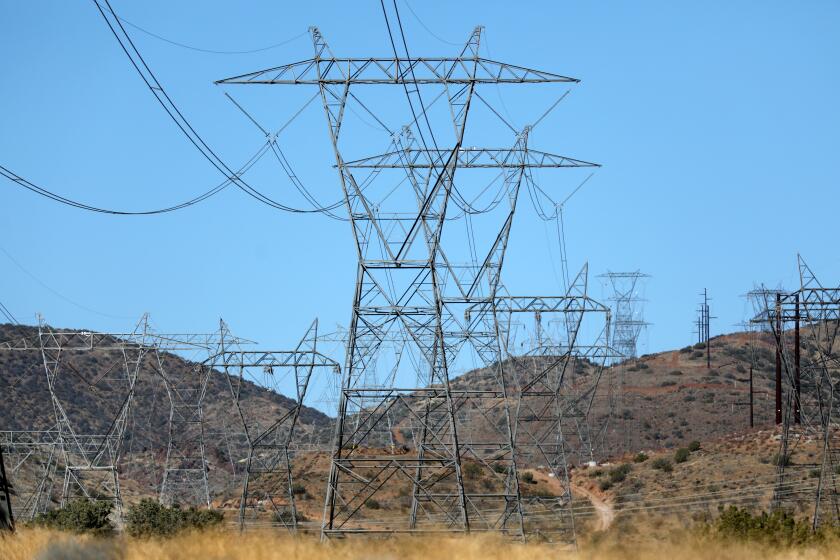Arafat’s One Last Chance to Be a Leader
The United States may have realized some newfound leverage with Yasser Arafat, thanks to President Bush’s speech last Thursday, and it is important for Secretary of State Colin Powell to use it when he meets the chairman as he plans to do this weekend.
The president implied that it was now or never for Arafat. If Arafat fears that the U.S. will sever ties with him if he does not give unequivocal orders to prevent terror and publicly discredit it as a threat to the Palestinian cause, he may finally be forced to make a choice. My experience with him suggests that he only chooses to act when he has no choice.
If there is any hope for Arafat, he must conclude from his meeting with Powell that he is out of chances.
Bush also threw down a gauntlet, challenging Arab leaders either to help produce a change in Arafat’s behavior or to exert their leadership given the absence of effective Palestinian leadership.
Unfortunately, simply calling on the Arabs is not going to produce the role we seek. They have a long history of avoiding any responsibility for the Palestinians. They embrace the cause of the Palestinians, particularly given its resonance among their public, but run for cover when asked to pressure the Palestinians. No Arab leader ever wants to be accused by the Palestinians of forcing them to surrender their rights or their struggle.
No doubt Powell hoped that by meeting Arab leaders and the Europeans before going to Israel he could build a consensus behind his efforts to pressure both the Palestinians and Israelis. But in the current circumstances, the Arab leaders were bound to turn the tables on him.
They insisted that before they do as he asked, Powell must meet with Arafat--something he has announced he will do--and commit to launch a credible negotiating process. Powell also must produce an end to the Israeli military operation in the West Bank.
If that is the price the Arabs impose for making any real effort to help, the secretary’s challenge in Israel will be truly formidable. Leaving aside Ariel Sharon’s unwillingness to negotiate under fire or with Arafat, the Israeli military operations in the West Bank have extraordinary support among the Israeli public, which wants its military to finish the job of destroying the terrorist infrastructure that Arafat has allowed to flourish in the Palestinian cities and refugee camps. Wednesday’s bus bombing in Haifa only added to that resolve. Israelis have no illusions that the military operations will stop terror forever. But they believe it will provide at least some respite.
While Sharon will not want to appear to be saying no to President Bush, he will be very reluctant to appear to be giving in until the military believes it has completed the mission.
Will the Arab leaders be satisfied short of a full halt to the incursions? I don’t believe so. Powell will certainly try to get Sharon to wrap up the operations on an accelerated basis, but he may need to stay in the region until such time as the Israelis complete their pullback. There will be no cease-fire without that, and there will be no negotiating process without a cease-fire that holds.
Having said all this, I do not believe that Powell is on a mission impossible. He has leverage with all sides.
The Arabs want his intervention. He must tell them that his readiness to persist with U.S. efforts to produce a meaningful negotiating process depends on their leaning on the Palestinians to stop the terror attacks and that they also must change their own rhetoric on suicide bombings.
Bear in mind that the very anger on the Arab street that has motivated the administration to act is a source of real fear to Arab leaders. They need the situation to be stabilized. They believe that we are the only ones who can influence the Israelis. They need to know that that won’t happen unless they do their part.
With the Israelis, their very understanding that the current operations can only produce a respite from terror provides an important opening. But a respite will mean nothing if there is not a political strategy to build on it.
But in the end, Arafat has to decide. He will try to up the ante, insisting there can be no cease-fire without a U.S. commitment to Israeli withdrawal to the 1967 borders. He will settle for less but also claim he can take only partial measures.
The secretary of State must echo the president: No more failed leadership and no acceptance of half measures.
If we succumb to the allure of half steps by Arafat now, any calm that results from Powell’s trip will be very short-lived.
*
Dennis Ross, the incoming director of the Washington Institute for Near East Policy, is a former U.S. envoy to the Middle East.
More to Read
Get the L.A. Times Politics newsletter
Deeply reported insights into legislation, politics and policy from Sacramento, Washington and beyond. In your inbox three times per week.
You may occasionally receive promotional content from the Los Angeles Times.






